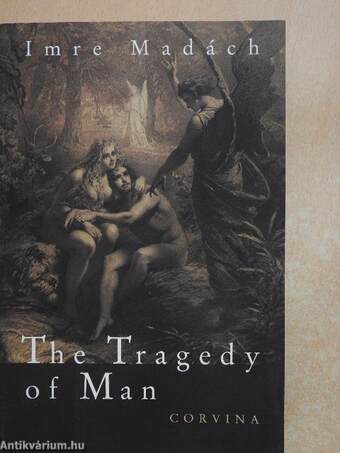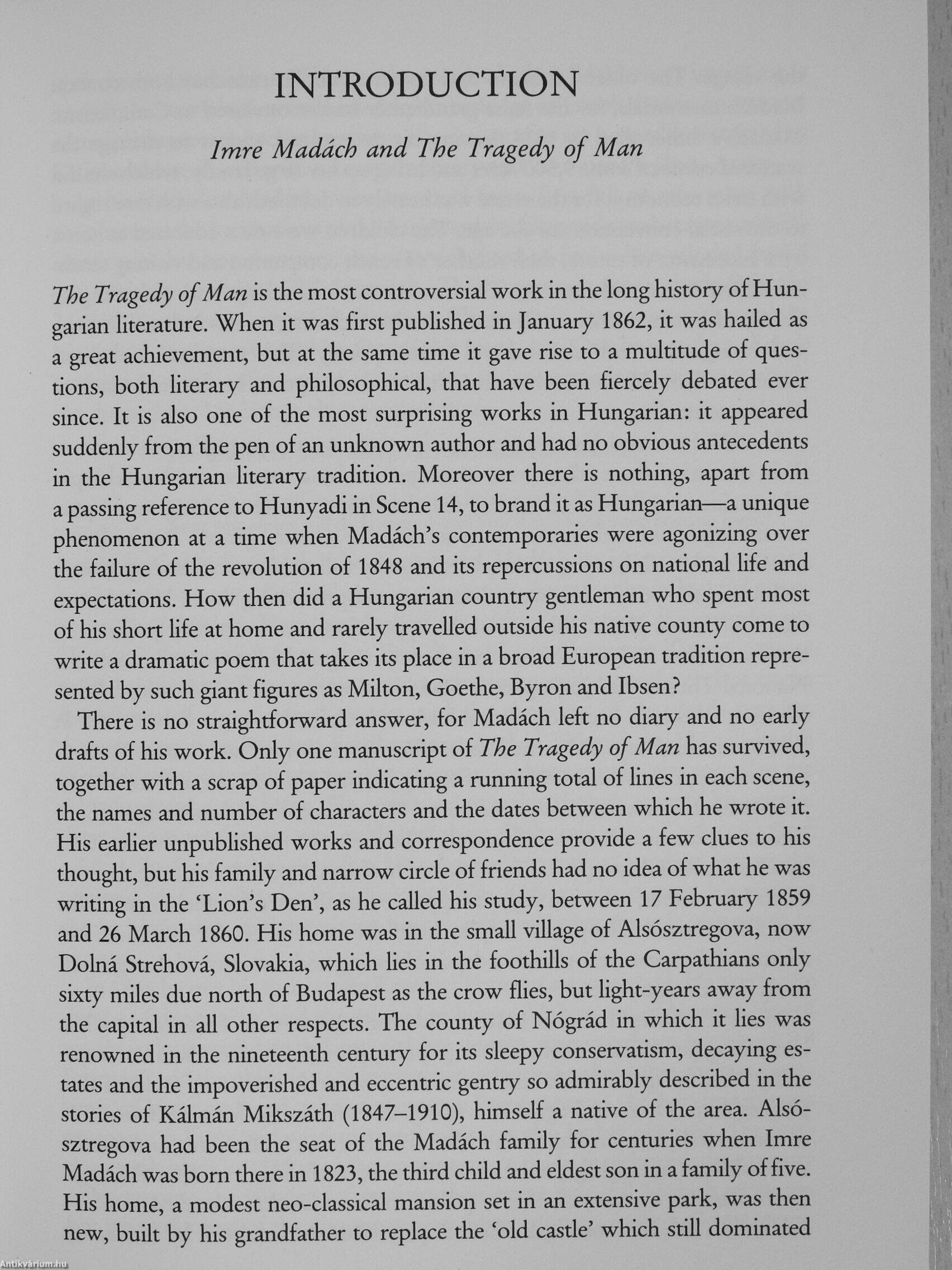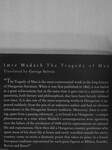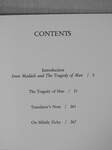1.034.828
kiadvánnyal nyújtjuk Magyarország legnagyobb antikvár könyv-kínálatát

VISSZA
A TETEJÉRE
JAVASLATOKÉszre-
vételek
The Tragedy of Man
| Kiadó: | Corvina |
|---|---|
| Kiadás helye: | Budapest |
| Kiadás éve: | |
| Kötés típusa: | Ragasztott papírkötés |
| Oldalszám: | 269 oldal |
| Sorozatcím: | |
| Kötetszám: | |
| Nyelv: | Angol |
| Méret: | 24 cm x 16 cm |
| ISBN: | 978-963-13-5850-6 |
| Megjegyzés: | Fekete-fehér illusztrációkat tartalmaz. |
naponta értesítjük a beérkező friss
kiadványokról
naponta értesítjük a beérkező friss
kiadványokról
Előszó
TovábbFülszöveg
Imre Madách The Tragedy of Man Translated by George Szirtes
"Th e Tragedy of Man is the most controversial work in the long history of Hungarian literature. When it was first published in 1862, it was hailed as a great achievement, but at the same time it gave rise to a multitude of questions, both literary and philosophical, that have been fiercely debated ever since. It is also one of the most surprising works in Hungarian: it appeared suddenly from the pen of an unknown author and had no obvious antecedents in the Hungarian literary tradition. Moreover, there is nothing, apart from a passing reference( ), to brand it as Hungarian - a unique phenomenon at a time when Madách's contemporaries were agonising over the failure of the revolution of 1848 and its repercussions on national life and expectations. How then did a Hungarian country gentleman who spent most of his short life at home and rarely travelled outside his native country come to write a dramatic poem that takes its... Tovább
Fülszöveg
Imre Madách The Tragedy of Man Translated by George Szirtes
"Th e Tragedy of Man is the most controversial work in the long history of Hungarian literature. When it was first published in 1862, it was hailed as a great achievement, but at the same time it gave rise to a multitude of questions, both literary and philosophical, that have been fiercely debated ever since. It is also one of the most surprising works in Hungarian: it appeared suddenly from the pen of an unknown author and had no obvious antecedents in the Hungarian literary tradition. Moreover, there is nothing, apart from a passing reference( ), to brand it as Hungarian - a unique phenomenon at a time when Madách's contemporaries were agonising over the failure of the revolution of 1848 and its repercussions on national life and expectations. How then did a Hungarian country gentleman who spent most of his short life at home and rarely travelled outside his native country come to write a dramatic poem that takes its placc in a broad European tradition represented by such giant figures as Milton, Goethe, Byron and Ibsen?" Vissza
Témakörök
Megvásárolható példányok
Nincs megvásárolható példány
A könyv összes megrendelhető példánya elfogyott. Ha kívánja, előjegyezheti a könyvet, és amint a könyv egy újabb példánya elérhető lesz, értesítjük.








